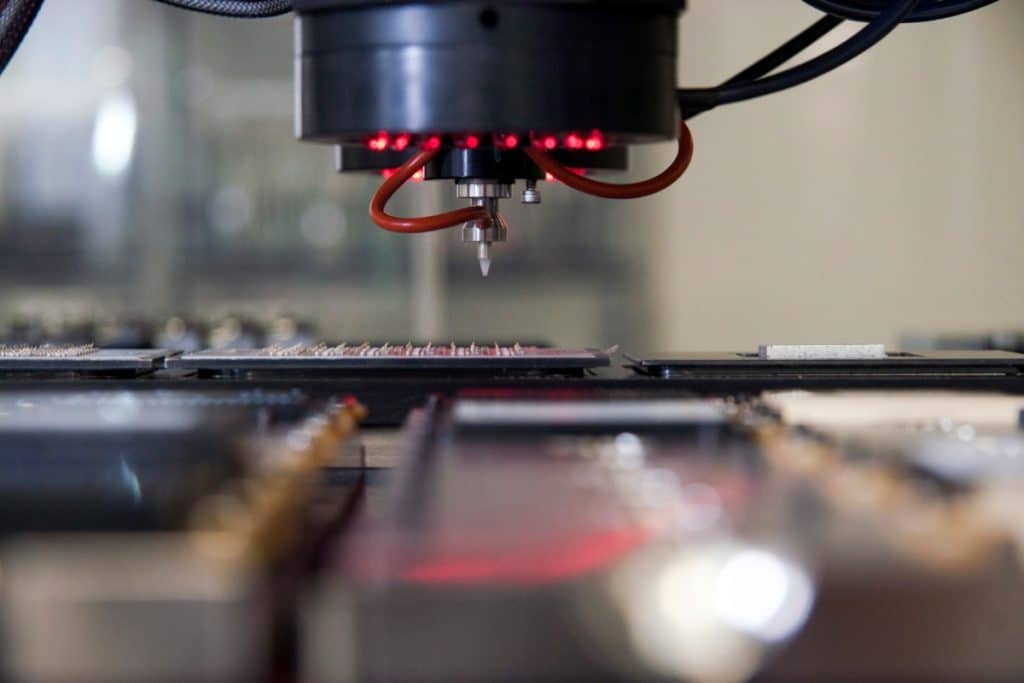Efficiency is a significant aspect for all companies dealing with discrete manufacturing. Having efficient operations in your firm will guarantee satisfied customers, faster turnarounds, and increased productivity. One of the discrete manufacturers’ best approaches to driving efficiency at every turn is using an enterprise resource planning solution. Instead of using generic software tools for your business, here is how to improve discrete manufacturing effectiveness with an ERP.
Discrete Manufacturing Defined
Did you know that almost all products purchased from a store come from discrete manufacturing? It refers to producing each unit of the final product separately and then assembling them into one fine piece.
Discrete manufacturing involves assembling tangible parts to create finished products. Generally, the manufacturers assemble parts they can see, count, and touch to develop subsystems or ready-for-consumption products.
There are several workstations in a discrete manufacturing process. These workstations are along the production line, producing distinct components, materials, or subassemblies to create the final product. Many prefer this manufacturing process since the end products are unique and countable.
In most instances, the finished products come out as units you can disassemble and recycle. Here are popular discrete manufacturing companies you should know:
- Airplanes
- Textiles
- Automobiles
- Toys
- Mobile phone and electronics
- Cookware
Key Features of Discrete Manufacturing
Like conventional manufacturing software, discrete manufacturing requires unique accessories to operate seamlessly. You must take into account the following specifications when considering this program:
It Focuses on Serial Numbers
Discrete manufacturing uses serial numbers to keep track of all your equipment, parts, and items. The serial number management feature makes finding anything within the manufacturing process, in or out of the factory, easy.
It Creates and Maintains BOMs
A Bill of Materials helps configure and save all the information about product manufacturing. Discrete manufacturing provides a comprehensive BOM of the parts, materials, and assemblies necessary for order completion.
Monitor Inventory
Discrete manufacturing also helps monitor your inventory levels to prevent stock dry-outs. The manufacturing approach has specific inventory management software allowing you to set minimum and maximum stock levels for the materials used.
How Can ERP Improve Productivity in Discrete Manufacturing?
Discrete manufacturing is unique and accommodates manufacturing types like Engineer-to-order, Assembly-to-order, or Make-to-stock. Integrating the ideal ERP assists the system in scheduling, planning, and other production tasks. It also connects all the data from different departments.
Here are the different ways ERP implementation allows you to oversee discreet manufacturing operations effectively:
Better Schedule Management
A manufacturing ERP considers all the facets of production and helps in planning. The solution allows your business plan materials and resources, including capacity, equipment, people, and skills. You can also coordinate demand management, materials planning, forecasting, and master scheduling with different departments.
Improved Accuracy in Project Costing
You must collect and analyze data through the discrete manufacturing process to effectively execute cost management. An ERP like GoldFinch contains your company’s cost data and embeds it into other functions in the business, like inventory and purchase order management.
Since all this is automated, you can trust that the information is accurate and reliable to make better predictions and manage cost-related decisions. ERP integration also allows you to track stock and non-stock materials and support substitute materials and operations when fulfilling an order.
Keep Track of Inventory
Most ERPs feature inventory management software that helps manage costs, different valuation methods, and multiple warehouse locations. This software includes lot and serial numbering, two-step transfers, and expiry date management. You can add a CRM tool to the inventory management function to allow transparent relationship management, shared contact information, and sales order discounting and promotion.
Better Warehouse Management
A significant percentage of firms using discrete manufacturing have multiple warehouses. These firms need a warehouse management system to know the specific location of certain goods. The system also creates positive customer relationships since it improves receiving materials, inventory management, and order fulfillment.
What are the Benefits of GoldFinch ERP and Salesforce CRM in a Discreet Manufacturing Environment?
GoldFinch ERP and Salesforce CRM create a potent configuration guaranteed to boost your discrete manufacturing operations. ERP helps bring everything in your company together, while CRM focuses on building valuable customer relationships.
There are many benefits a discrete manufacturing firm can realize from using GoldFinch and Salesforce, and they include the following:
Streamlined Processes
GoldFinch ERP provides end-to-end visibility into your supply chain, inventory management, and production processes, helping you significantly streamline your manufacturing. On the other hand, Salesforce helps with sales forecasting, customer communication, and lead management.
Increased Efficiency
The increased efficiency delivered by ERP and CRM integration is among the main reasons many discrete manufacturers adopt this system. GoldFinch ERP automates redundant tasks like production scheduling and order entry, saving time and reducing errors. Your sales team also gets to prioritize leads, track sales performance, and manage customer relationships using Salesforce CRM.
Improved Collaboration
Integrating GoldFinch ERP and Salesforce CRM makes it easy for manufacturers to improve collaborations between different departments. It supports real-time data and insights sharing between teams like sales and production, leading to faster decision-making.
Enhanced Customer Experience
Discrete manufacturers understand the importance of keeping the customer happy, so they try to deliver personalized experiences. Salesforce CRM helps you personalize customer interactions to provide better experiences. Adding GoldFinch to the configuration means manufacturers can make timely and accurate customer order tracking and fulfillment.
Improved Data Management
Another way ERP and CRM integration will help discrete manufacturers is by allowing better data management. GoldFinch and Salesforce help manufacturers manage large data amounts effortlessly since they automate data entry and deliver real-time reports. It will enable manufacturers to make data-driven decisions using the valuable insights provided in their operations.
Conclusion
All managers overseeing discrete manufacturing operations must understand the benefits of integrating practical and compatible ERP and CRM solutions. GoldFinch and Salesforce ideally work together to ensure your manufacturing business realizes its true potential by providing access to several tools and features. This configuration means you’ll have streamlined processes, improved collaboration, increased efficiency, better data management, and enhanced customer experience.



